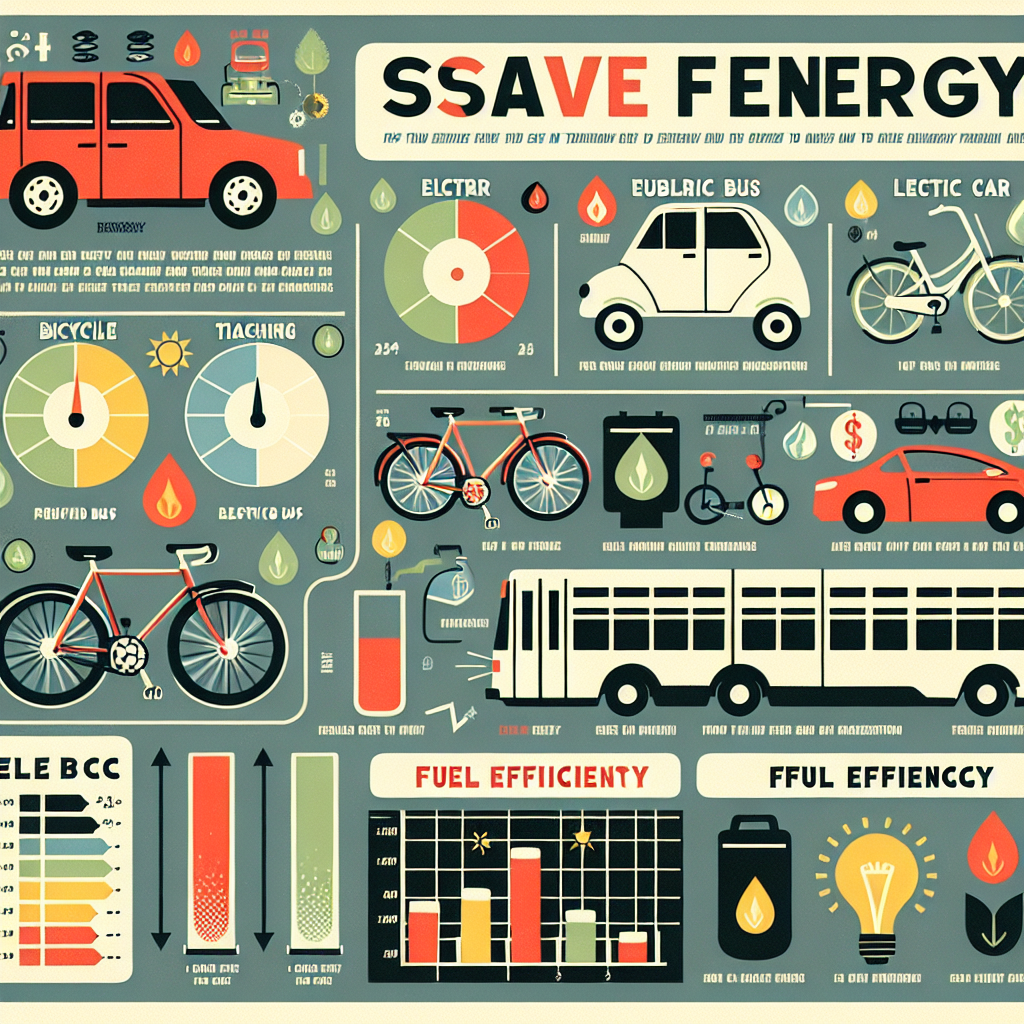Table of Contents
Introduction

Transportation plays a crucial role in our daily lives, enabling us to travel from one place to another conveniently. However, the energy consumption associated with transportation, particularly in the form of fuel, has become a significant concern due to its environmental and economic implications. In Indonesia, where the demand for transportation is rapidly increasing, finding ways to improve energy efficiency and save fuel has become imperative. This article explores various strategies and technologies that can be employed to achieve energy efficiency in transportation and ultimately reduce fuel consumption.
The Importance of Energy Efficiency in Transportation
Transportation is one of the largest contributors to greenhouse gas emissions, primarily through the burning of fossil fuels. In Indonesia, the transportation sector accounts for a significant portion of the country’s total energy consumption and carbon dioxide emissions. Therefore, improving energy efficiency in transportation is crucial for mitigating climate change and reducing the country’s dependence on fossil fuels.
1. Efficient Driving Techniques
Efficient driving techniques can significantly contribute to energy savings in transportation. By adopting practices such as smooth acceleration and deceleration, maintaining a steady speed, and avoiding unnecessary idling, drivers can optimize fuel consumption. Additionally, reducing vehicle weight by removing unnecessary items and ensuring proper tire inflation can further enhance energy efficiency.
2. Public Transportation and Carpooling
Promoting the use of public transportation and carpooling can have a substantial impact on reducing fuel consumption. Public transportation systems, such as buses and trains, can accommodate a large number of passengers, reducing the number of individual vehicles on the road. Carpooling, on the other hand, allows multiple individuals to share a single vehicle, thereby reducing fuel consumption and traffic congestion.
3. Alternative Fuels
Exploring alternative fuels is another effective strategy to improve energy efficiency in transportation. Biofuels, such as ethanol and biodiesel, can be produced from renewable sources and have lower carbon emissions compared to conventional fossil fuels. Additionally, electric vehicles (EVs) powered by electricity generated from renewable sources offer a sustainable and energy-efficient transportation solution.
4. Hybrid and Fuel-Efficient Vehicles
Hybrid vehicles combine an internal combustion engine with an electric motor, resulting in improved fuel efficiency and reduced emissions. These vehicles utilize regenerative braking and engine shut-off features to optimize energy usage. Furthermore, advancements in technology have led to the development of fuel-efficient vehicles that maximize mileage per gallon of fuel consumed, reducing overall energy consumption.
5. Infrastructure Development
Investing in infrastructure development is crucial for promoting energy efficiency in transportation. Building well-designed roads, implementing intelligent transportation systems, and establishing charging stations for electric vehicles can encourage the adoption of energy-efficient transportation options. Additionally, creating dedicated lanes for public transportation and carpooling can further incentivize their use.
The Role of Government and Policy
The government plays a vital role in promoting energy efficiency in transportation through the implementation of policies and regulations. In Indonesia, the government has taken several initiatives to address this issue. For instance, the Ministry of Transportation has introduced fuel efficiency standards for vehicles, encouraging manufacturers to produce more fuel-efficient models. Additionally, the government has provided incentives for the adoption of electric vehicles, such as tax exemptions and subsidies.
Conclusion
Efficiency in energy consumption is crucial for sustainable development, particularly in the transportation sector. In Indonesia, where the demand for transportation is rapidly increasing, it is essential to prioritize energy efficiency and fuel savings. By adopting efficient driving techniques, promoting public transportation and carpooling, exploring alternative fuels, utilizing hybrid and fuel-efficient vehicles, and investing in infrastructure development, Indonesia can significantly reduce its fuel consumption and carbon emissions. The government’s role in implementing supportive policies and regulations is also crucial in driving the transition towards energy-efficient transportation. Embracing these strategies and technologies will not only benefit the environment but also contribute to the country’s economic growth and energy security. It is imperative for all stakeholders, including individuals, businesses, and the government, to work together towards a more energy-efficient transportation system in Indonesia.
